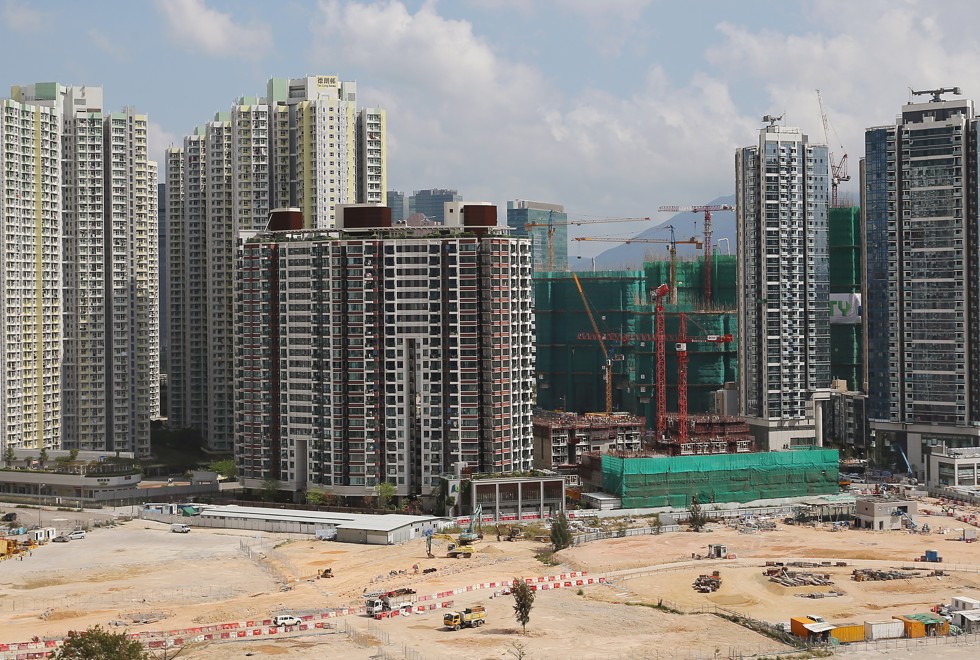
New thinking needed to tame Hong Kong’s overexcited property market
Tammy Tam says it’s not just a matter of when bubble bursts but also impact on next generation’s trust in government as well as city’s competitiveness
Will Hong Kong’s property bubble burst soon? It’s a million-dollar question, the answer to which seems obvious unless you’ve been turning a deaf ear to the government’s increasingly frequent and intensified warnings.
Sounds scary? You would think, but the scenario on the ground paints quite the opposite picture: the queues of anxious homebuyers flocking to every new property sale just keep getting longer, it seems.
Have all these people lost their minds? Not really, looking at the reasons or “myths”, depending on who’s talking.
He also reminded the public that a total of 96,000 new private flats will go on the market in the coming three to four years, though the government’s overall target of completing 460,000 homes in the next decade still looks difficult to achieve.
Leung, who has only weeks left on the job, is trying to get people to see that it has become a matter of “one sows and another reaps”. Of course, his opponents won’t let him go and continue to attack him for failing to make housing more affordable, but his supporters counter that without his efforts, property prices would have run even wilder, like an unbridled horse.
Some justification can be found in both sides of the argument, but it nevertheless leads to another fact or myth: that the city’s housing problem is purely the result of a lack of supply. If that were true, a simple mathematical exercise would conclude “inelastic demand”.

Apart from population growth, one demanding demographic which was not seen or even imagined back in 1997 was the influx of cross-border homebuyers, from individual users to investors, speculators and mainland corporations.
With demand still surging, a corresponding ramping up of supply is not happening or does not seem to be. Leung and his administration put the blame on various hurdles, many politically driven, that have prevented the government from providing enough land all these years.
At the same time, while home prices continue to skyrocket out of reach for most young people, more parents seem to be willing these days to offer their children a helping hand out of fear that prices will just keep on surging beyond their reach. Such a scenario would have been quite rare 20 years ago.
Meanwhile, the traditional wisdom that “paying rent means paying someone else’s mortgage, which equals a waste of money” is still a dominant line of thinking among many potential buyers.
This begs the crucial question: what more can the city’s new leader do when people are driven more by fear of missing a chance to buy a flat before it becomes even more expensive, than anticipation of the bubble bursting? That, in a sense, is a more decisive factor when buying property than impending interest rate rises.
We cannot simply depend on the US Federal Reserve to set things right with a dose of interest rate reality. New thinking is required on the part of Hong Kong’s new leader.
Incoming chief executive Carrie Lam Cheng Yuet-ngor should surely be well aware that public confidence in her new housing initiatives matters more, perhaps, than any new measures she will roll out.
Looking at the current overexcited property market, it’s not just a matter of when the bubble bursts but also the impact on our next generation’s trust in the government, as well as the city’s competitiveness.
Is there a need to bet on the inevitability of another major financial crisis? The problem is, many are still buying.

